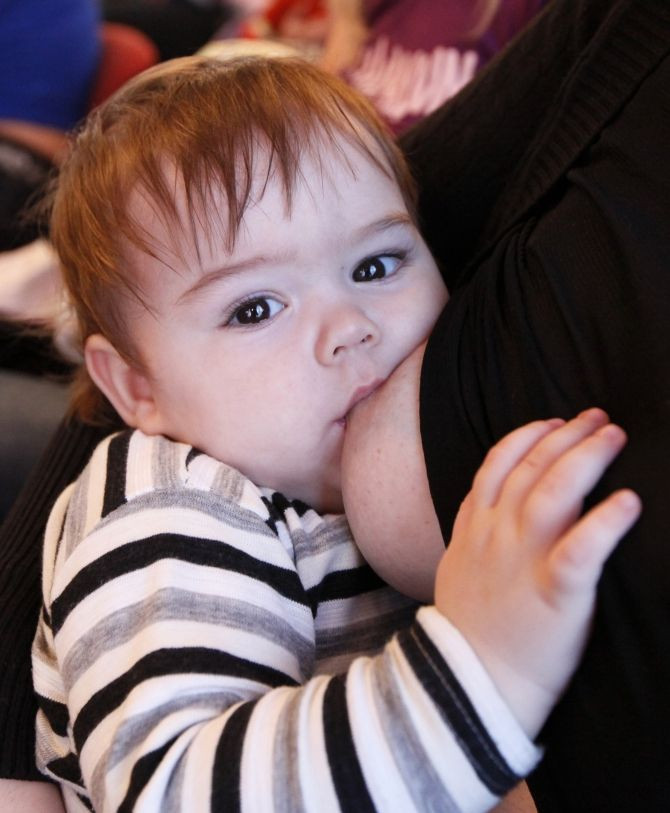Exclusively Breastfeeding Babies May Increase Nut Allergy Risks

All over the world mothers are advised to exclusively breastfeed their babies for the first six months. However, a new study says that children who are exclusively breastfed for six months after birth may be at increased risk of developing allergies to nuts.
The World Health Organization (WHO) recommends exclusive breastfeeding for at least 6 months, with continued breastfeeding along with complementary food along for 2 years or beyond. Researchers in the present study report that exclusive breastfeeding in early development might be the reason that there is an increase in nut allergies among children.
“Our results contribute to the argument that breast feeding alone does not appear to be protective against nut allergy in children – it may, in fact, be causative of allergy,” said Professor Marjan Kljakovic of General Practice at the ANU Medical School and the study’s author.
For the study, researchers surveyed more than 15,000 parents from 110 Australian Capital Territory (ACT) primary schools between 2006 and 2009.
Parents were asked whether their child had nut allergies as well as how the child was fed during the first 6 months.
“Some 3.9 per cent of children starting school in the ACT have a parent-reported nut allergy, which is almost twice the rate of British children of the same age,” said the study’s author and Professor of General Practice at the ANU Medical School, Marjan Kljakovic.
Researchers found that children who were solely breastfed for the first 6 months had one and half times higher chances of having allergies to nuts. Children who were given other foods at an early age along with breast milk had lower chances of developing nut allergies.
“Over time, health authorities’ recommendations for infant feeding habits have changed, recommending complementary foods such as solids and formula be introduced later in life," Professor Kljakovic said.
“Despite breast feeding being recommended as the sole source of nutrition in the first six months of life, an increasing number of studies have implicated breast feeding as a cause of the increasing trend in nut allergy," Professor Kljakovic said.
According to the Centers for Disease Control and Prevention (CDC), 4 out of every 100 children in the U.S suffer from a food allergy. Nuts like peanuts and tree nuts -walnuts, pecans, hazelnuts, almonds, cashews, pistachios, and macadamia nuts- are common allergens.
“Peanut allergy accounts for two-thirds of all fatal food-induced allergic reactions. It is important for us to understand how feeding practices might be playing a part,” he said.
The study was published in the International Journal of Pediatrics.



























